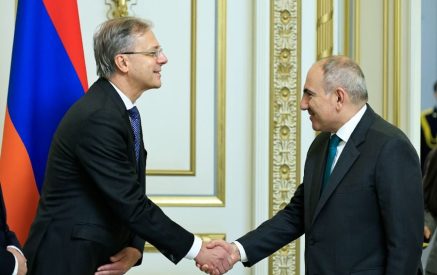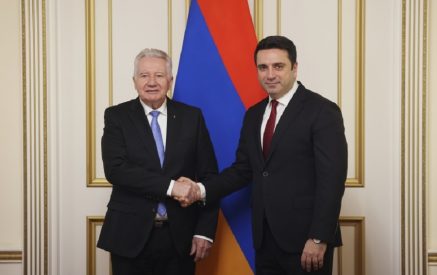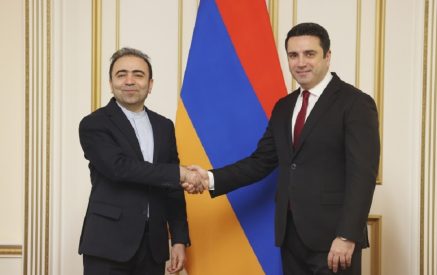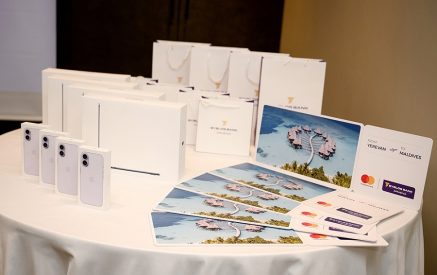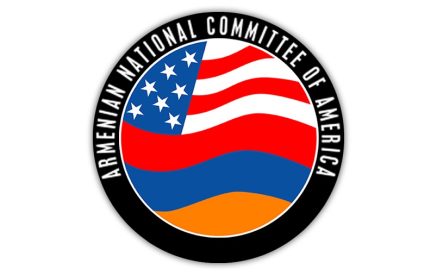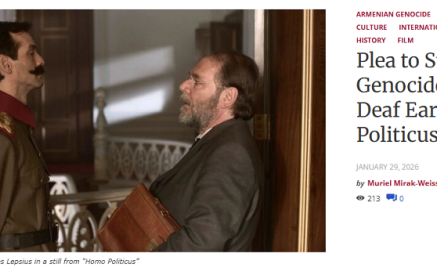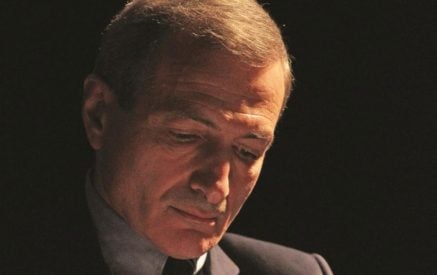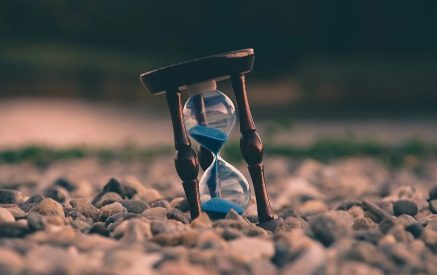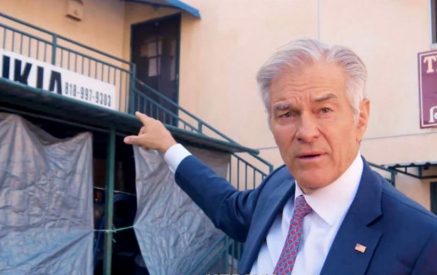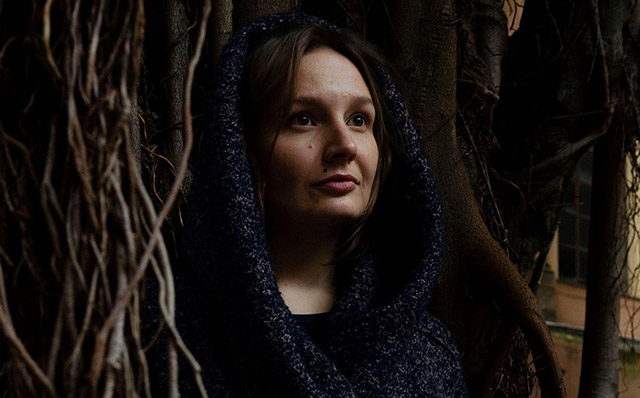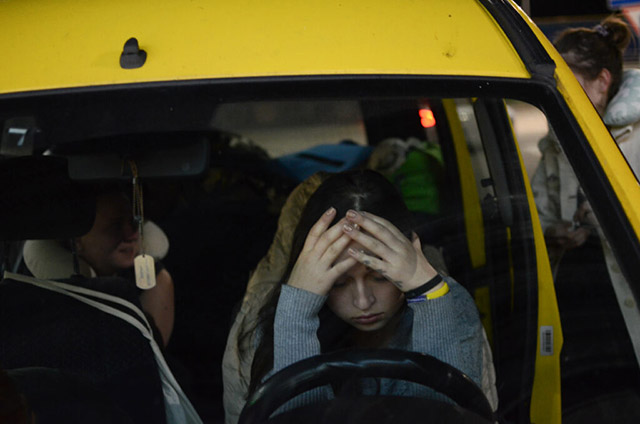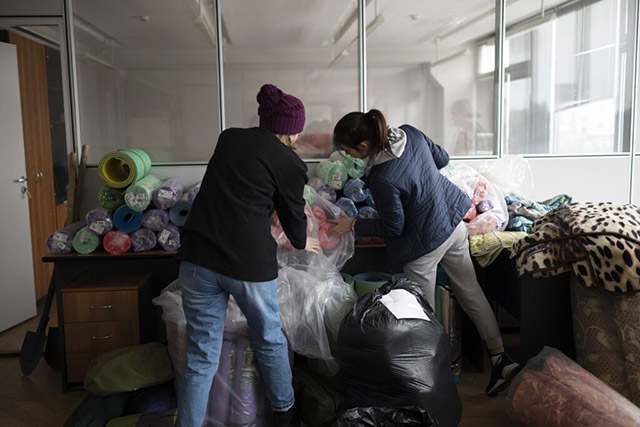When war broke out in Eastern Ukraine in 2014, Kateryna Pryimak felt she couldn’t just sit peacefully at home: she signed up for the ‘Hospitallers’, a volunteer medical battalion providing first aid and evacuating wounded Ukrainian soldiers from the war zone, choosing for herself a more appropriate code name – Zoya, from the Greek, meaning ‘life’.
Kateryna spent 11 months as a paramedic on the front line. Back in civilian life, she worked in television, but in 2018 joined efforts to set up the Ukrainian Women’s Veteran Movement, of which she became the deputy chairman.
But on February 24, 2022, the war came back with a vengeance, as Russia launched a full-scale invasion of Ukraine. “How could I just sit there doing nothing? I had to react! The first days after 24 February I was super stressed. I couldn’t sleep or eat. I felt the need to do something all the time. This is my country. Nothing has changed in my attitude towards it. I am the same as I was in 2014, I have the same desires. People like me – volunteer paramedics – were needed in 2014. But now there is a real need for humanitarian aid, and I felt I could be more useful in this way,” says Kateryna.
In addition, she quickly realised that she could no longer work as paramedic – after active rotations when the war began, she could no longer stand the sight of blood. “I couldn’t continue to work effectively as a medic. So, I decided to switch to humanitarian support. Now my phone never stops ringing,” she says.
Today Kateryna, together with her fellow Hospitallers’ veteran Yulia Sydorova (code name “Cuba Libre”), runs the volunteer headquarters of the NGO “Ukrainian Women Veteran Movement”. At first, the veterans thought about organising a team to take the wounded from the battlefield – they have more than enough skills and experience. “It is easy to find a gunner and a driver. We had a car. The first days we thought that she and I would help with evacuations. But we needed to have a headquarters. When it is not clear what to do, set up a headquarters. But we realised that medical evacuation wouldn’t work, because we had only one first aid kit. Cuba’s medical backpack had remained in Kharkiv, everything I had remained at the base back in 2015. We realised that we had nothing, and we couldn’t get anything – no gear, no helmets, no armour, no tactical medicine. We only had a car and a headquarters. So, we started looking for everything and, this way, we found a second wind as organisers,” she says.
At the same time, she says she would sometimes freak out, want to leave the humanitarian volunteering and dive back in with the Hospitallers on rotation on the front line in Hostomel. And her reflexes as a combat medic are still working. If someone screams “Medics!”, even in jest, she is by their side in seconds.
“But I feel responsible for every volunteer who works (and some live) in our headquarters organising humanitarian aid. We have wonderful people working for us. When the fighting was around us, we joked that if anything happened, our headquarters would be able to revive the nation. Because we have artists, architects, sculptors, directors, male and female IT specialists who work in our headquarters… There are people from Mariupol, people from near Kyiv. That is, these people are those who have nowhere to return. They give themselves completely to work. How can I leave them?” she adds.
Flashback from 2014
At the beginning of the war in 2014, all her rotations took place in the hottest spots near Donetsk airport – in Pisky and at the Butivka mine. At the same time, she considers her experience was not so bad – there were units who fought in much worse conditions.
“I used to talk about despair, about the history of girls, terrible conditions, sexism and the environment in which they fought. But from a living conditions perspective, in 2014, the Hospitallers had everything they needed. We were equipped with everything, we could wash in the shower, food delivery was provided to us. From this perspective, it was more or less comfortable,” she recalls.
After demobilisation, the girl became one of the leaders of the “Ukrainian Women Veteran Movement” and actively defended the rights of female soldiers. She didn’t think about returning to war and joked that she had become much more careful than eight years ago.
The movement now
Things are different now: “First, we have male volunteers. Second, we only have three female veterans left at our headquarters. Most of our girls are now fighting at the front, the rest are also searching for ammunition, just like us, only in other regions,” she explains.
She laughs that another difference is the growing sense of cooperation, even with ideological opponents who previously had a lot of disputes with veterans. The war has established cooperation between all those who are ready to work for an effective fight back against the invaders.
Kateryna spends most of her time at the headquarters with a phone, dealing with a variety of issues. She works so much that she doesn’t always have time to notice the change of weather or the time of day. But it cannot be otherwise. The risks of dying while volunteering are infinitely smaller than on the battlefield, but the work is no less difficult and demanding, especially now. “Now the situation is also different from 2014. This is confirmed by those who have been volunteering since then. In 2014, you could go to the “Militarist”, buy army boots and send them to the East. Now, the situation sucks: the demands are huge, but the resources are not so huge. Every currency transaction, every move across the border is a real pain,” the girl says.
Despite the complexity of searching and responding to requests, almost everything can be found in the fund’s warehouse – medicines, hygiene products, tactical gear, ammunition. There is a cookhouse where they cook for defenders, a “bar” where cocktails are served (the ones that are very necessary for defenders). There is even a separate drone room, where almost everyone can assemble drones and upgrade them if needed. “We have everything, but a little bit of everything and in small quantities, because there are just a lot of requests,” laughs Kateryna.
“We help to solve logistics, delivery of supplies and humanitarian issues. We divide our activities into helping the military and civilians. The military, of course, have priority – our girls (almost all of our veterans are fighting now) are on the front line and the front line as a whole is a priority. We are raising funds, buying ammunition, looking for all sorts of cool things for the military,” she says.
On those who did not escape from the war
After the liberation of the Kyiv region, another priority emerged – to help those people who had lived through and survived the Russian occupation. “There is hunger, cold and just really tough stuff. Because when the flames of war die down, and the joy of small victories subsides, the real face of the war emerges, the suffering of the civilian population. What we saw is really tough. I know, for example, that the military will definitely be fed now. But these people need help. And their animals, too. There are settlements where the situation is even worse than in Bucha or Irpin. Only a small window of this horror has been opened to us. It’s much bigger than we can imagine. Unfortunately, those who are far from this war can very quickly forget how important it is for us all to help each other together,” she says.
On Sunday, 3 April, Kateryna decided to arrange her first day off since the beginning of the invasion. And she deeply regretted it. It was the day when the gates to hell were opened with the news from Bucha. “I felt that I was lying with a completely tense body, I couldn’t do anything, I was reduced to a little bundle, just constantly watching the news. I think many people felt like this. If I were at work, it would be a bit easier,” she admits.
After that, she and her team left to help the towns liberated from the Russians. This trip turned out to be very difficult, even for a woman who has long seen war from very close. She says that in 2014, the turning point had been a trip to Donetsk, where she saw people fleeing the war. It was a overwhelming sight. Now it turned out that seeing people who could not escape from the war was far harder to take.
“Really, in terms of destruction, I expected the worst. Landscapes with ruins are familiar to me. I’ve seen more ruined towns. But communicating with people is the hardest thing right now. When a man shows a mass grave and shows how a woman was burned alive there and begins to cry, and then lights a cigarette, it is clear that the person probably has to stay there and wait for the town to recover together with his psyche. Because a peaceful town would kill him now,” she says.
“I really don’t know how we’re going to live with this. At times there is a desire to leave the body altogether, so as not to feel this pain so acutely. But mostly I feel an emotional emptiness right now. It’s amazing to me that I don’t feel anger or hatred. Because I hated Russians even before it became mainstream. But now I feel only pain and emptiness. Although when I work, I know that I look absolutely normal, ordinary, cheerful,” adds Kateryna.
That’s also why she works a lot.
On victory
Kateryna is one of the veterans who had no doubt that Russian aggression would not be limited to the Donbass. “I knew for sure that the war would resume. But I thought we’d have a few more years to live. I thought that they would try to be gradually exhaust us in the East over a long time. I believed that Russia would soon be screwed, and they would not dare to start a big war. Unfortunately, Russia is not yet screwed. I didn’t want to believe they would do such a thing. Although it was inevitable. Because this is not just a war, but really a battle of two civilisations,” she says.
Another fact seems obvious to her – Ukraine will win this war. “We have no choice. We are doing everything right. I believe in karma. I believe that we are supported by the previous forces of the liberation struggle. Everything that is happening now reminds me very much of the Maidan. Only the battle for the future is not taking place in the centre of Kyiv, but on a nationwide scale. Such a powerful force cannot lose. I see how people around me are ready to defend the country until their last breath. I see how motivated everyone is. Such motivation is already a victory,” she says.
At the same time, she definitely does not idealise the situation and sees all the challenges and shortcomings, including inside the army. “We have excellent soldiers and officers who, in addition to fighting an external enemy, also have to fight internal idiocy. Yes, there is plenty of shit. But now we see the best forms of cooperation emerging. They’re all great! We’ll solve all our problems later. After the victory, we will be different and will appreciate much more everything we have. Because we paid a very high price for it,” the veteran explains.
The girl emphasises that to survive in this war, Ukrainians must be more sensitive to each other – “this will save us!”
“Our chaplain in the Ukrainian Volunteer Corps ‘Right Sector’ always said before going on rotation: ‘Kill your enemies with love.’ I was thinking, ‘How is that? What nonsense! Is he advising us to love to kill?’ But now I know what he means. It is impossible to build Ukraine on the hatred of Russians. Hatred provides energy for battle. But the resource for recovery is love. Kill your enemies with love – I mean loving your loved ones, who need protection and warmth of caring. Hatred is now natural and understandable. But there is no need to mirror those who bring only evil and hatred. We should focus on caring for each other and trusting each other,” she says.




























